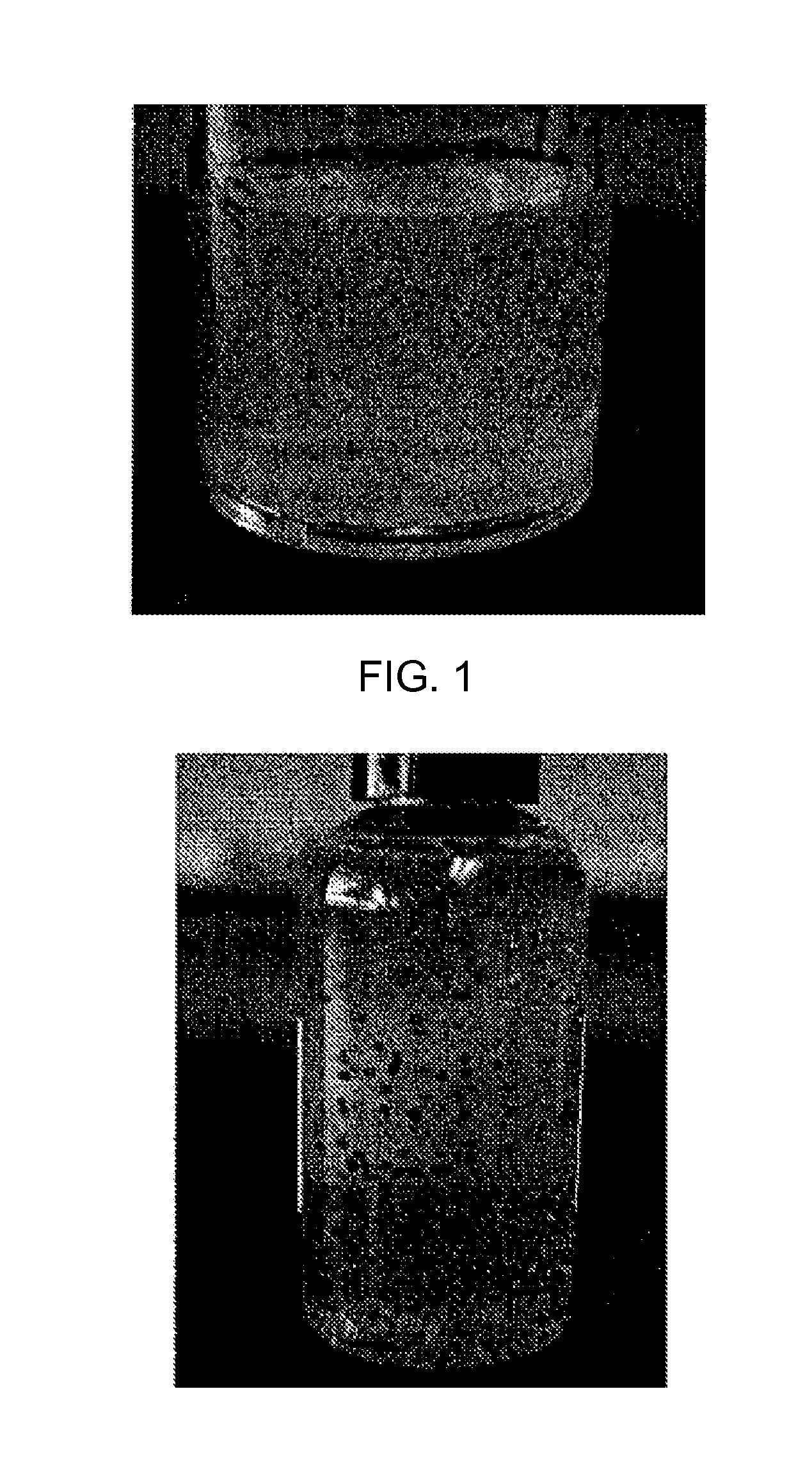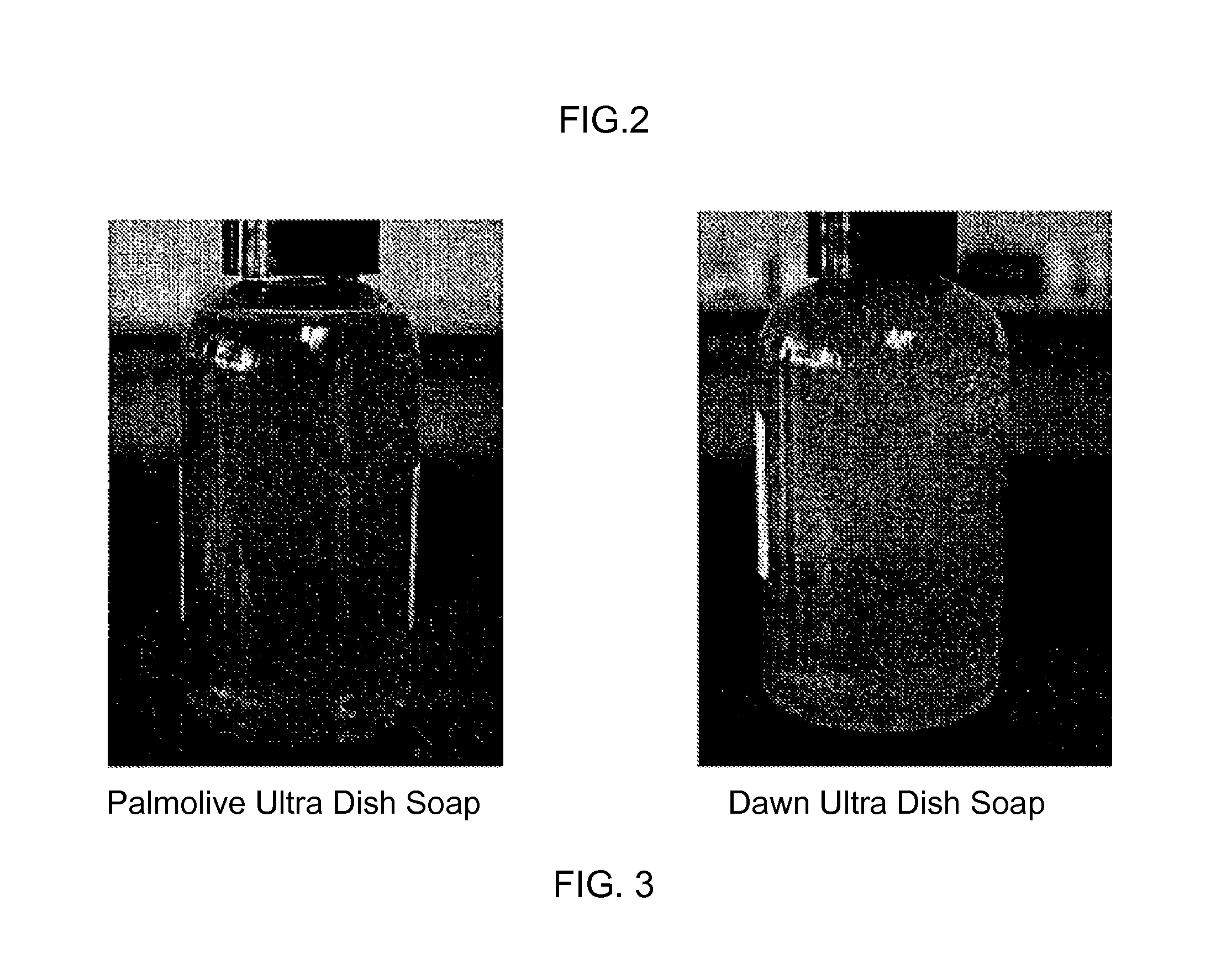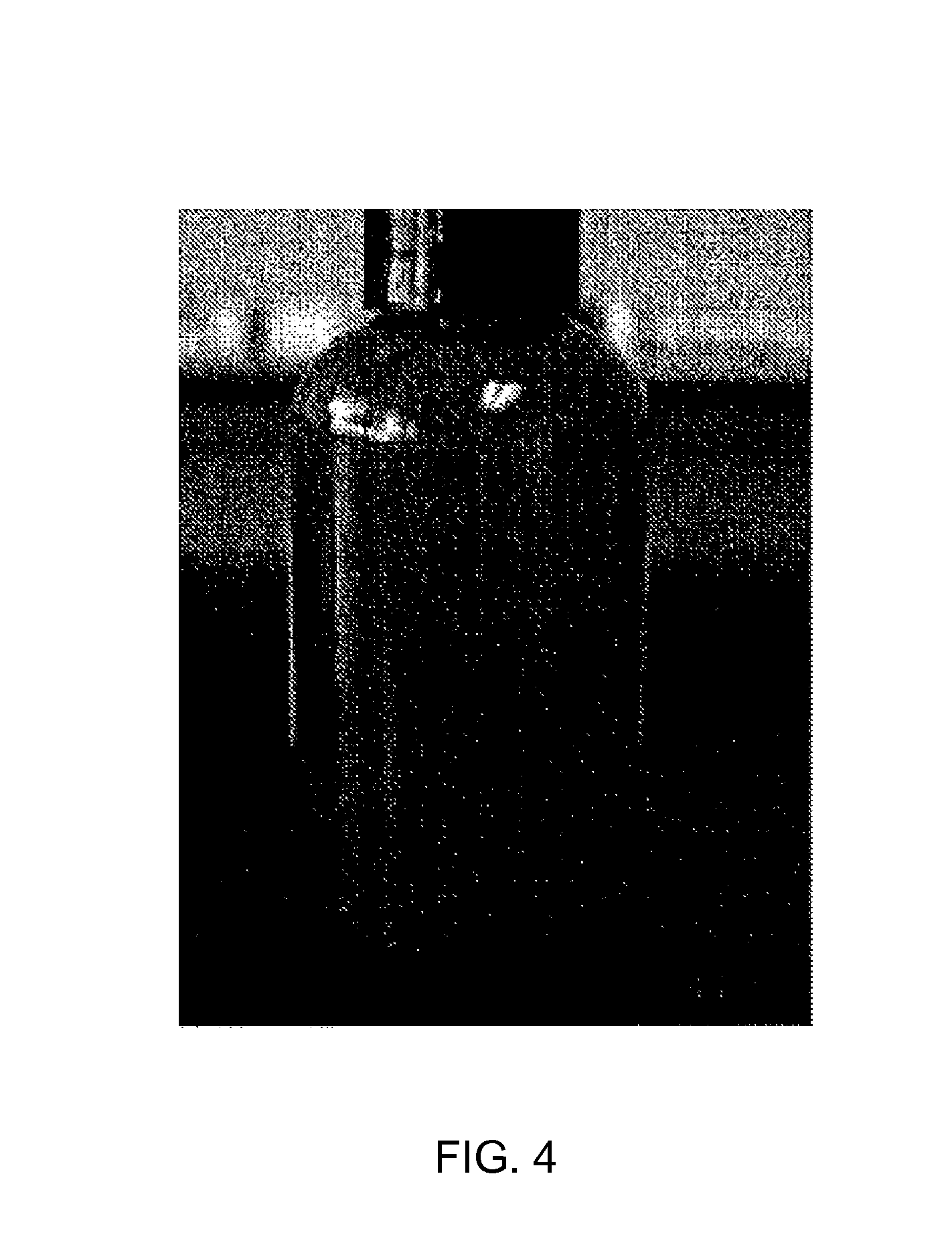Surfactant thickened systems comprising microfibrous cellulose and methods of making same
a technology of thickening system and microfibrous cellulose, which is applied in the direction of drug composition, transportation and packaging, detergent compounding agent, etc., can solve the problems of loss of transparency, insufficient low shear viscosity, and inability to provide sufficient low shear viscosity, and achieve high shear rates
- Summary
- Abstract
- Description
- Claims
- Application Information
AI Technical Summary
Benefits of technology
Problems solved by technology
Method used
Image
Examples
example 1
[0021]A liquid body wash with air bubbles was prepared. FIG. 1 displays the clarity and suspensive qualities of this system. The resulting body wash exhibited very thick surfactant rheology based on visual inspection, possessed the ability to suspend air bubbles, and a yield value of about 3.4 Pa (as measured with a Brookfield® Yield Rheometer).
[0022]Step A: Deionizied water, 10% NaCl solution, and Kathon® CG were added to a small Oster® mixing jar. Microfibrous cellulose (MFC / xanthan / CMC 6:3:1 blend) was added to the top of the water and then the Oster® mixer blade was assembled and the combination was mixed at top speed for 5 minutes (“Liquify” speed).
[0023]Step B: The contents were transferred to a 400 mL tall-form beaker with a paint mixing blade. Sodium laureth sulfate (JEELATE® ES-3) was added to the solution described in Step A and mixed at about 1000 rpm for 5 minutes. Sodium cocamidopropyl betaine (JEETERIC® CAB-LC) was then added to the mix and mixed an additional 5 minute...
example 2
[0026]A body wash was prepared as described in Example 1 but incorporated the suspension of beads instead of air bubbles. Alginate beads were added as the conclusion of step C. A visual representation of this embodiment can be seen in FIG. 2.
example 3
[0027]High surfactant systems were prepared using manual dishwashing liquid and laundry detergent. Alginate beads or air was suspended in the solutions. Palmolive Ultra® dish soap was diluted in half to make a “normal” concentration dish soap. A concentrate was first prepared containing 0.25% microfibrous cellulose blend (MFC / xanthan / CMC 6:3:1 blend) in deionized water. The concentrate was made by mixing the solution on an Oster® blender at “liquefy” (top speed) for 5 minutes. The microfibrous cellulose mixture was then diluted 1:1 with Palmolive Ultra® detergent or Dawn Ultra® detergent (the Palmolive® contained 0.1% triclosan) using a paint mixing or propeller blade. The dish soap was added to the microfibrous cellulose solution while mixing. Excellent clarity and suspension of air and / or alginate beads were achieved for both the Palmolive Ultra® detergent and Dawn Ultra® detergent samples. The microfibrous cellulose diluted well notwithstanding the relative low shear of the paint...
PUM
| Property | Measurement | Unit |
|---|---|---|
| transparent | aaaaa | aaaaa |
| transparent | aaaaa | aaaaa |
| yield point | aaaaa | aaaaa |
Abstract
Description
Claims
Application Information
 Login to View More
Login to View More - R&D
- Intellectual Property
- Life Sciences
- Materials
- Tech Scout
- Unparalleled Data Quality
- Higher Quality Content
- 60% Fewer Hallucinations
Browse by: Latest US Patents, China's latest patents, Technical Efficacy Thesaurus, Application Domain, Technology Topic, Popular Technical Reports.
© 2025 PatSnap. All rights reserved.Legal|Privacy policy|Modern Slavery Act Transparency Statement|Sitemap|About US| Contact US: help@patsnap.com



